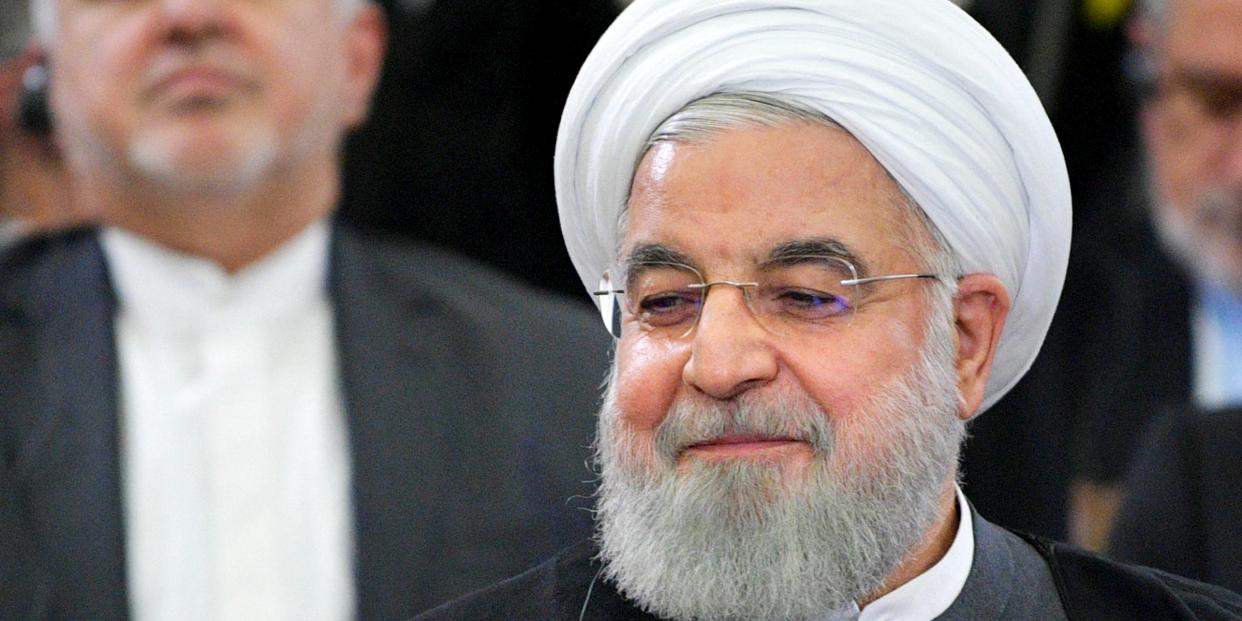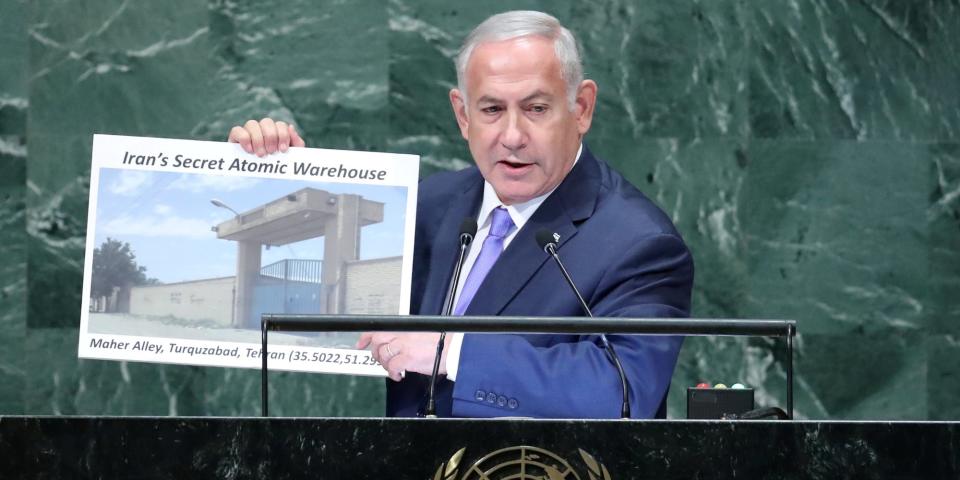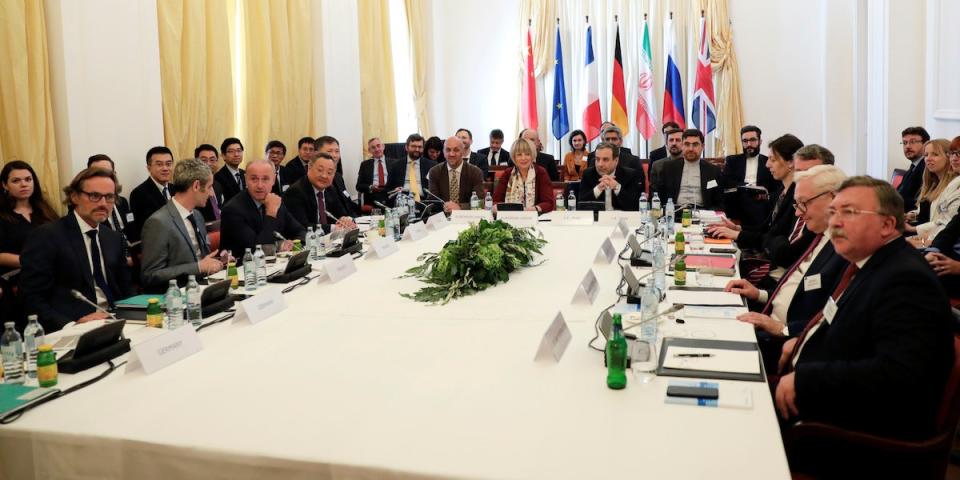Investigators found uranium particles at a secret facility in Iran, suggesting a further rejection of the nuclear deal

Associated Press
The UN's nuclear watchdog reported on Monday that uranium particles had been discovered at a site not previously declared by the Iranian government, multiple news reports say.
The confidential report did not name the facility that had been producing the particles, Agence France-Presse reported, but cited sources as saying that the samples had been taken from a facility in Tehran's Turquzabad district.
Iran previously claimed that the Turquzabad site is a carpet cleaning factory that has no other purpose.
Iran has been taking incremental steps away from the 2015 nuclear deal to stand up to President Donald Trump's withdrawal from the agreement and increased sanctions under his "maximum pressure" campaign.
Nuclear investigators have found uranium particles at a facility that had not been declared by Iranian government, Agence France-Presse (AFP), the Associated Press (AP), and the BBC reported, suggesting the country's further departure from the 2015 nuclear deal.
"The agency has detected natural uranium particles of anthropogenic origin at a location in Iran not declared to the agency," the International Atomic Energy Agency (IAEA), the UN's nuclear watchdog, said in a confidential report published Monday, according to AFP.
The particles had been mined and had undergone initial processing, but not enriched, AFP reported.
The report did not name the facility that had been producing the particles, the BBC and AFP reported. However, anonymous diplomatic sources told AFP that the samples had been taken from a facility in Tehran's southwest Turquzabad district.
Iran has previously claimed that the Turquzabad site is a carpet cleaning factory that has no other purpose.
Israeli Prime Minister Benjamin Netanyahu, who has repeatedly warned about Iran's undeclared nuclear archives, told the UN last year that the Turquzabad site contained "a secret atomic warehouse for storing massive amounts of equipment and material from Iran's secret nuclear weapons program."

Carlo Allegri/Reuters
Many Iranians mocked Netanyahu's claim and took selfies in front of the facility to refute his claims at the time. Iran has repeatedly said that its nuclear program is for peaceful purposes only.
The IAEA has not yet responded to Business Insider's request for comment on the report and clarification on the location of the uranium found.
Separately, the IAEA's report also confirmed that Iran had been enriching uranium and using centrifuges in Fordo, an underground site in the country's northwest, the AP reported. The nuclear deal had ordered the Fordo site to be a research center, but it is now home to 1,000 centrifuges, the AP said.
The IAEA also said Iran's stockpile of low-enriched uranium had grown to 372.3 kg (820.78 pounds) as of November 3, according to the AP. The nuclear deal limited the stockpile to 202.8 kg.
Iran said last week that it was now enriching uranium to 5%, higher than the 3.67% mentioned in the deal, AFP reported. The IAEA report said the highest level of uranium enrichment is currently at 4.5%, the news agency said.

Leonhard Foeger/Reuters
Iran has over the past few months taken incremental steps away from the 2015 nuclear deal in what appears to be an attempt to stand up to President Donald Trump's withdrawal from the agreement and increased sanctions on the regime under his "maximum pressure" campaign.
The country prompted suspicion earlier this month when it attempted to impede an IAEA investigation into its nuclear facilities.
Country authorities forbade an unnamed IAEA inspector from entering the Natanz uranium enrichment facility — claiming that she had triggered an alarm at the entrance — and briefly held her, Reuters reported.
The inspector later had her travel documents and nuclear accreditation taken away, the news agency reported. The IAEA has disputed the claim that the inspector triggered an alarm, and said Iran's treatment of her was "not acceptable," the BBC and AFP reported.
Richard Nephew, the lead sanctions expert in US-Iran negotiations from 2013 to 2014, told Business Insider earlier this year that Iran is looking for "leverage" amid the sanctions and the EU's inability to bring Washington and Tehran back to the nuclear deal.
"The Iranians have showed us since May 2018 [when the US pulled out of JCPOA] that their first priority is to take small steps that demonstrate they can take bigger steps, but not to do things that fundamentally change" the geopolitical landscape, Nephew said.

